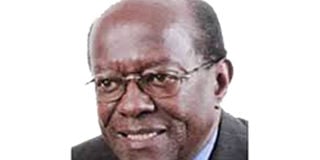Prime
Mismanagement of freehold land is one of the main causes of disputes

What you need to know:
Gift is null and void. Since Katalemwa land was not vested in the government at the time it was given to an investor, the gift is null and void in law and the land still belongs to Makerere University.
Last week, a former minister of Lands made an admission which raises serious questions regarding how ministry manages freehold land. The minister admitted in a press interview that land at Katalemwa belonging to Makerere University was given to a private investor after the Uganda Land Commission confirmed that it was available for the investor.
The minister who had been cited in the controversial giveaway of the university land explained that she had been directed by the President to find land for a certain investor. The minister went on to say “….I then discussed with Uganda Land Commission and they gave me a title of land in Katalemwa in the names of Uganda Land Commission.”
The Katalemwa land giveaway is just a tip of the iceberg of what is going on in the land office over land which had been leased to the Governor during the colonial period and which was supposed to return to the lessee at the end of the period under the provisions of the Crown Land Ordinance.
The military regime did away with the Crown Lands Ordinance, which had become known as the Public Land Act, after independence. Under the Land Reform Decree of 1975, all interest in land were converted to leasehold interests from the government. However, this system did not work and to all intents and purposes, the colonial system continued in force.
The Constitution reversed the military regime reforms and provided in Article 237(3) that “Land in Uganda shall be owned in accordance with the following land tenure systems, namely customary, freehold, mailo and leasehold.”
This Constitution also created the Uganda Land Commission, whose role is “…….to hold and manage any land in Uganda vested or acquired by the government of Uganda in accordance with the provisions of this Constitution...”
Since Katalemwa land was not vested in the government at the time it was given to an investor, the gift is null and void in law and the land still belongs to Makerere University.
Secondly, the question arises as to how the transfer to the investor was effected. The Registration of Titles Act provides that “The proprietor of land… may transfer the same by transfer in one of the forms the seventh schedule to this Act…..”
The proprietor in the Katalemwa case is Makerere University, which institution never signed such a transfer. So how can anybody be a transferee of a registered property without a transfer in his favour?
At the time of independence, there were five types of freeholds, namely freeholds under the Crown Lands Ordinance, freeholds originating from the Buganda Agreement of 1900 or mailo land, native freeholds in Tooro and Ankole kingdoms, adjudicated freeholds created under the Kigezi and Ankole registration scheme and limited freeholds granted over mailo land.
Before 1915, an African could transfer his full mailo interest to a non-African, but in that year, the colonial office decreed that a non-African could only hold mailo by way of a 99 year lease granted by the Governor.
Katalemwa land belongs to the latter category. The owner of the mailo land Nankyama Kangave, the father of Uganda’s hero I K Musazi, leased it to the Governor in 1920 for use by Makerere College for a period of 99 years at the end of which the land should have returned to Kangave’s descendants.
Instead of following the law, the land was illegally given away to private individuals. The mismanagement of this type of freehold land is one of the main causes of land disputes.
Mr Mulira is a lawyer.
[email protected]


